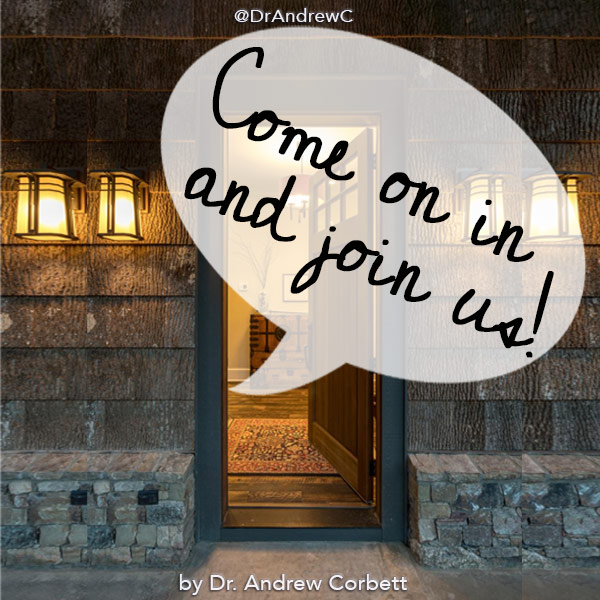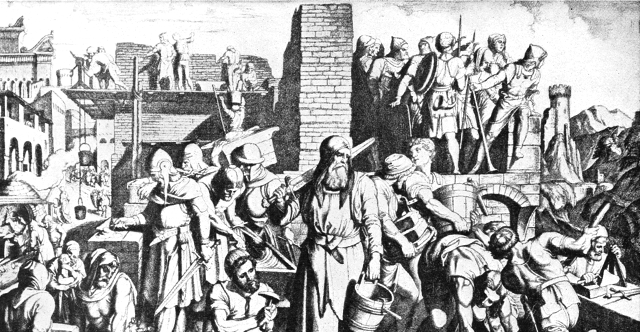THE RESILIENT
For this very reason, make every effort to supplement your faith with virtue,
and virtue with knowledge, and knowledge with self-control, and self-control with steadfastness, and steadfastness with godliness, and godliness with brotherly affection, and brotherly affection with love. For if these qualities are yours and are increasing, they keep you from being ineffective or unfruitful in the knowledge of our Lord Jesus Christ.
Resilience was one of the predominant character traits of the early Christians. They called it being steadfast. For these early Christians being ‘resilient’ meant being able to keep going despite set backs, discouragements, betrayals, unforeseen circumstances, lack of energy, motivation, and resources. Like a weary hiker looking down a long road that leads to the mountain range they must walk over, being resilient in life means putting one foot in front of the other, and then doing it again, and again, and again, and so on. God knows that today, in what many are describing as “Post-Christendom” (and the resilient among us prefer to think of as Pre-Christendom) to be resilient is to live with a purpose, to stay focused, to live for others, and to strive toward a good, honourable, goal. With so many reasons to lose sight of the true purpose of life the tendency is to be tricked into believing that life right now is too hard. But the truth be told – people need to know how to be more resilient. Leaders especially need to be resilient right now. Churches assuredly need to be resilient at this time. With the recent interference into churches by government through the measures they said was “to keep people safe” — it has actually depleted people’s ability and willingness to be resilient! Here’s what leaders, people, and churches can do about it.
The Apostle Barnabas always urged his converts to Christ to be resilient against the opposition, hardships, persecutions, and false teachings they would have to endure, telling them to be steadfast.
When he came and saw the grace of God,
he was glad, and he exhorted them all to remain faithful
to the Lord with steadfast purpose
Acts 11:23
Barnabas’s exhortation gives us the vital keys to becoming resilient: (i) remain faithful to the Lord by continuing to meet together as a church fellowship, and (ii) live with steadfast purpose. The Apostle Paul learned from his mentor and he too also made it his practice to urge believers to be resilient –
¶ Therefore, my beloved brothers, be steadfast, immovable,
always abounding in the work of the Lord,
knowing that in the Lord your labor is not in vain.
First Corinthians 15:58
In this verse Paul gives us additional keys to developing the kind of resilience necessary to be a mature Christian: (i) Be immovable in your commitment to doing the right thing by Christ and your brothers and sisters; (ii) always abound in the work of the Lord by serving others; and (iii) know and remember that everything you do in and on behalf of your church family is actually for the Lord and is therefore “not in vain”.
Older men are to be sober-minded, dignified,
self-controlled, sound in faith, in love, and in steadfastness.
Titus 2:2
Perhaps it’s because ‘older men’ (you know, men 60-years of age and older) all tend to be grumpy (I personally wouldn’t know about this because I am only in my fifties) that Paul tells his lieutenant, Titus, to encourage the older men in the church of Crete to be: (i) sober-minded (more positive in their outlook), (ii) dignified (be a good role model of what a happy man of God looks like), (iii) self-controlled (especially with how the talk and use their time), (iv) sound in faith (lovers of God and His Word), (v) loving (cheering on the next generation of Christian leaders despite their youth and inexperience), and (vi) steadfast (in their endurance and dogged commitment to participate in the service and communal worship of the Church).
Without resilience it is simply not possible to know, love, and enjoy God to the fullest. The younger half-brother of Jesus, the Apostle James, wrote this –
And let steadfastness have its full effect,
that you may be perfect and complete, lacking in nothing...
¶ Blessed is the man who remains steadfast under trial,
for when he has stood the test he will receive the crown of life,
which God has promised to those who love him.
James 1:4, 12
James actually said that the believer’s steadfast resilience would result in the believer receiving a glorious reward from the Lord – the crown of life.
In the past few years pastors have faced more challenges than most. Yes there were many unprecedented challenges, but pastors had deal with all kinds of hindrances from doing their job in a way that was obedient to Christ and His Holy Word. In Glenn Packiam’s book, ‘The Resilient Pastor’, he tells pastors that –
What have we observed so far? There has been a shifting of cultural tectonic plates as many contexts have become more and more post-Christian. The clearest way to explain that in terms of the earthquake-like shift is to say that we are post- Christendom, that era when Christianity and country, the kingdom of God and a sociopolitical kingdom, were symbiotically connected. This shift—though not necessarily the total rupture of the relationship—has caused a surge in the cultural oceanic waters. These waves look like the rise of new kinds of pluralism, paganism, and individualism.The aftermath is a mess. There are casualties—think of the programs churches would run that no longer exist, the TV shows in which Christianity was assumed as the backdrop for the family conflict, the changing laws about marriage, and more. And there is confusion. Christian impulses and values are being used to condemn Christian doctrines, practices, and institutions. The West is trying to sever the tree from its root while still demanding its fruit. –Glenn Peckiam, The Resilient Pastor, Barna Group, 2022, Page 40
Even though the pandemic has been over for two years now, its detrimental effects on how many believers viewed church is still taking a toll. In some respects, the pandemic brought unseen things to the surface and exposed what had long laid hidden. Sadly, one of those things was — What constitutes ‘church’ and what does being a part of church family Biblically mean? Many pastors now realise that many within their church congregation had a very poor understanding of how the Bible describes what the church is and what it means to be the church.
Earlier this year when it seemed that I was close to death’s door, I was physically unable to be with my church family on each Lord’s Day for nine weeks. Never in my life – and particularly never in my 27-years of pastoring Legana had I been absent from church for that long. My heart ached. When the specialist told me that my condition was terminal and that there could be no treatment or improvement in my condition, I knew that my absence must end. I needed to be physically present with my church family. There is something very physical and tangible about being the church. Christ has ensured that when His church comes together it will involve all of our physical and spiritual senses. When we partake of the holy and sacred elements of communion, we are holding the Lord’s body together as we ingest the consecrated unleavened bread. When we hold the cup we smell the fruit of the vine and imbibe His blood. When we hear each other pray and sing our praises and touch one another’s souls by our participation in exalting Christ together. As we hear the Word of God read, we hear, Our Father in heaven…forgive us as we forgive others. We are reminded of our role as a church to be the body of Christ as a visible presentation of God’s love and forgiveness to a bitter, unforgiving, unforgiven, angry, hurt, world.
Thus, it is a prime responsibility of a local church to meet together each Lord’s Day as our highest priority. We must draw from the encouragement of the first apostles as recorded in God’s Word who taught the first Christians how to be resilient. We must then re-learn these same keys:
(i) Look to Christ as the Lord in constant prayer;
(ii) Overlook offences that keep us from being immovable in our devotion to Christ and His holy Church;
(iii) Take your stand on God’s Word daily to draw spiritual strength and encouragement so that we can receive revelation from Him, because, above all – He (not the world) is our Audience of One.
May God grant us His grace to be resilient, abounding in good works, fruitful in our service of others, and ever hopeful that we have been promised a brighter and better future than our past.
Amen.
Pastor at Large,
Andrew
Let me know what you think below in the comment section and feel free to share this someone who might benefit from this Pastor’s Desk.




























